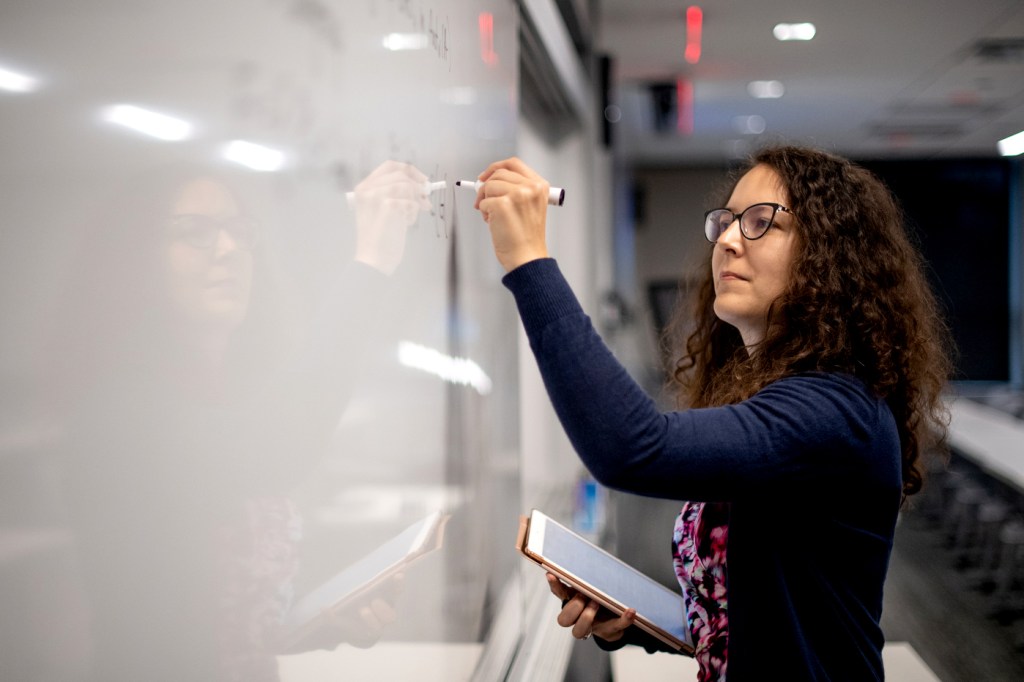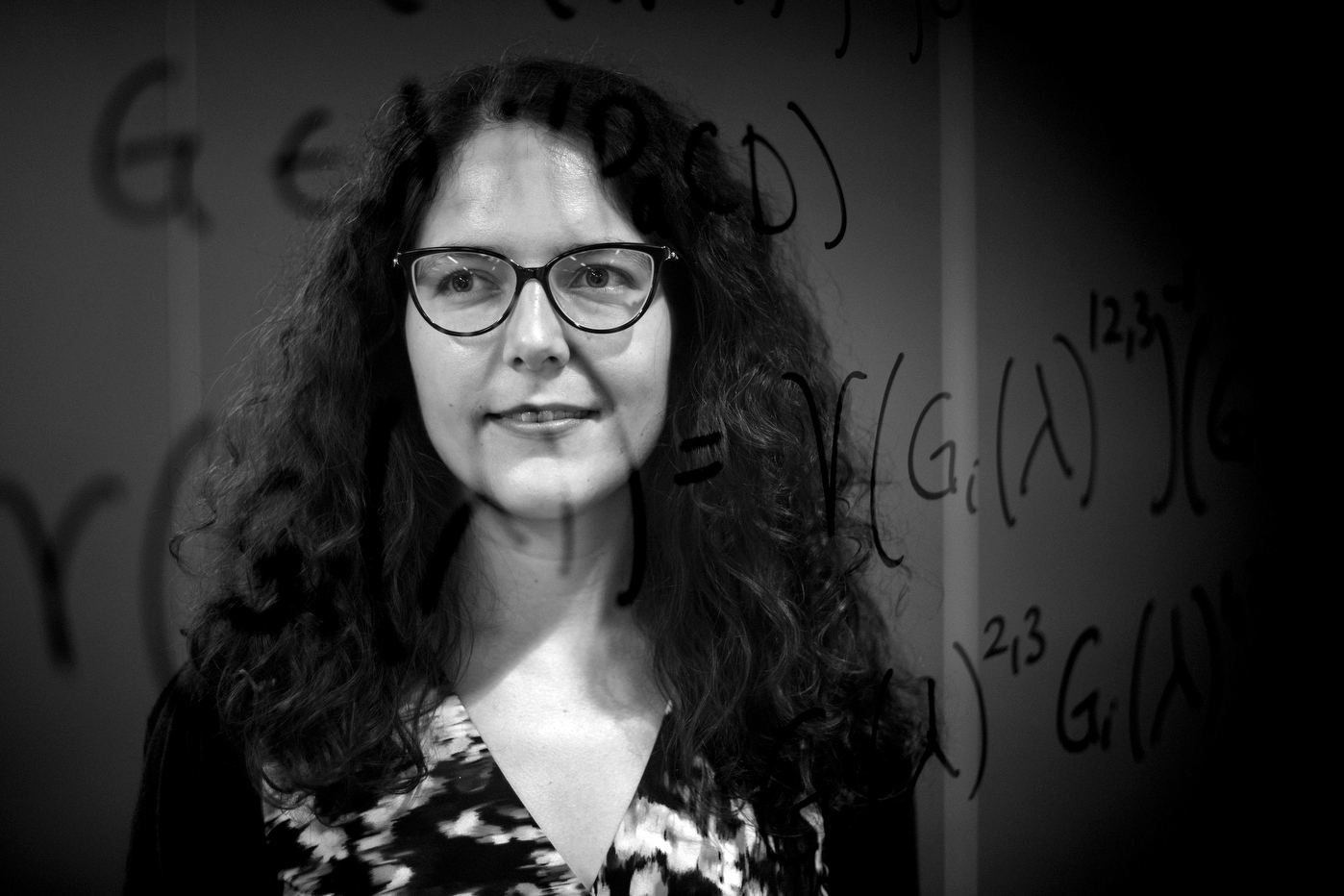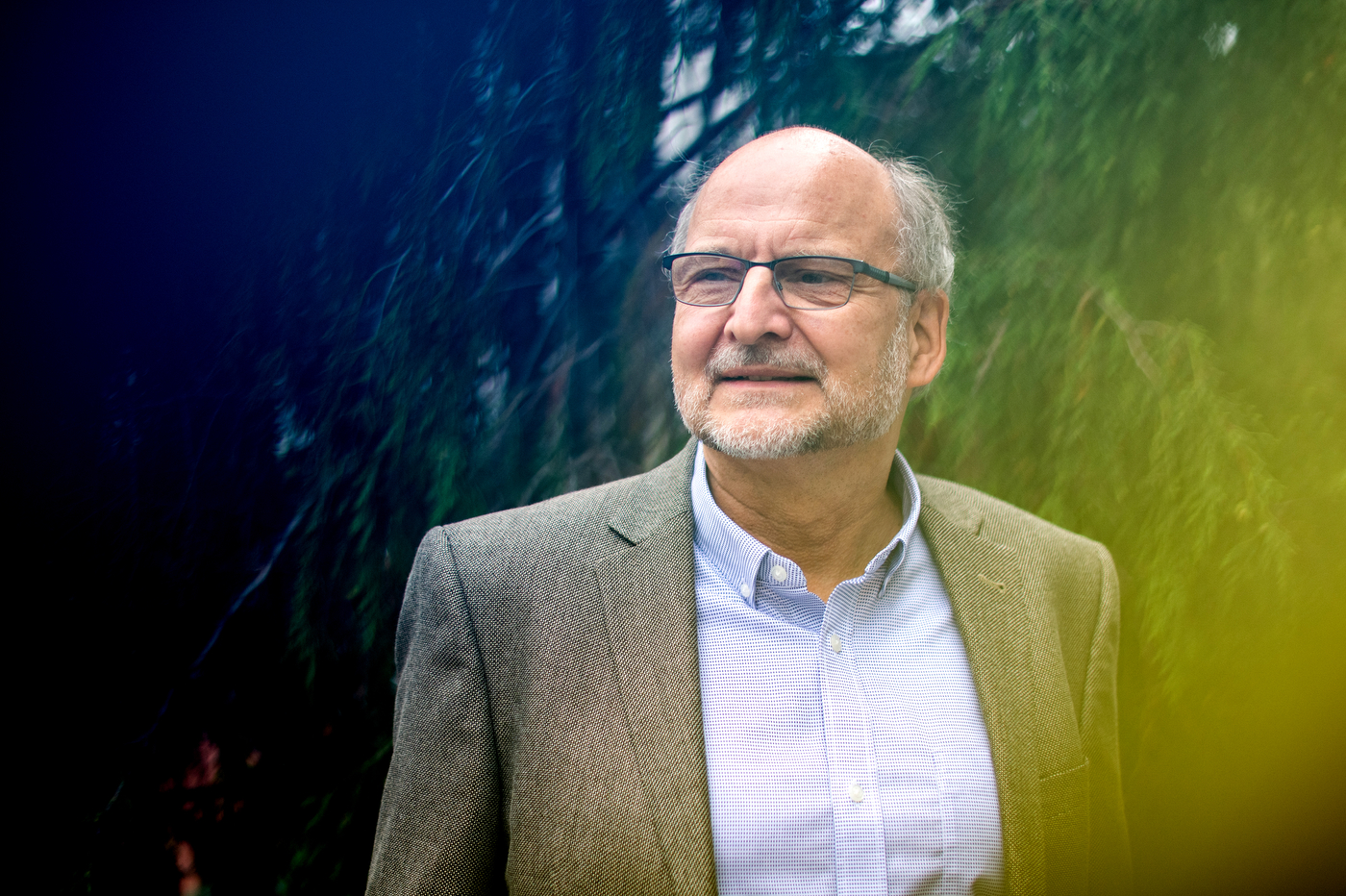Knots in the Fourth Dimension and Other Postdoctoral Math Program Studies

In 1969, three teenage boys named Andrei triple tied for silver in the International Mathematical Olympiad competition in the Soviet Union. Andrei Prasolov now teaches math at a Norwegian university, Andrei Hodulev has left no trace on Google, and the final runner-up, Andrei Zelevinsky, went on to become a university distinguished professor of mathematics at Northeastern, where he taught for 22 years until his death in 2013.
Today, the Zelevinsky Postdoctoral Fellow program is named in his honor. “Zelevinsky was an eminent mathematician, and one of the foremost professors at Northeastern,” says Egon Schulte, chair of the mathematics department. “The program has become the jewel of our department.”
Each year, the program accepts two or three fellows for the three-year position from a competitive pool of about 500 applicants. Currently, the program has seven fellows who split their time between research, advising, and teaching.
“When you look at the top graduate programs for mathematics in the country, they all have strong postdoctoral programs. We recognized that 10 years ago, when we started the program, and it’s been growing ever since,” says Schulte. “Now, the program is internationally known, and we’re competitive with other top-ranking universities.”


Many of the fellows in the Zelevinsky program have backgrounds in pure mathematics, in other words, research for the advancement of mathematics in general rather than research for solutions to specific applications. But Schulte says that recently, the program has expanded to incorporate and promote more applied maths in the areas of data analysis and biology, for example.
Iva Halacheva, one of the current fellows, is primarily interested in pure mathematics, though her area of research certainly has applications to real-world problems in biology.
When she’s not teaching or preparing for her introduction to math reasoning course, a class she has taught every semester since she began her fellowship in 2019, Halacheva is studying knots. But not the kind you tie on your sneakers.

In fact, the kind of knots Halacheva studies can seldom be held or even observed in real life. These knots are mostly theoretical, computer-generated puzzles that look like “hollow tubes that repeatedly branch off into other tubes,” Halacheva says.
“Knotted surfaces are a bit hard to find in real life,” she explains. “But they certainly appear in molecular biology. For example, knots can be used to model the structure of a strand of DNA.”
More specifically, Halacheva studies the topology of knots in the fourth dimension. Or simply put, she studies made-up knotted surfaces in the context of space and time, a dimension humans can explain scientifically but not experience in the physical realm.
In addition to teaching and conducting research, Zelevinsky fellows are encouraged to advise doctorate students in the math department. “The fellows are an integral part of the doctorate students’ education. They act like a link between students and faculty,” Schulte says.
Halacheva says that the fellows also help each other out. “In terms of our research, there’s a lot of shared knowledge,” she says. “And beyond that, they’re a great support group, especially if you’re moving to Boston from out of the state or out of the country.” Halacheva, for example, came to Northeastern from the University of Melbourne.
After completing the postdoctoral program at Northeastern, many fellows go on to pursue tenured positions. Halacheva, who is in her final year of the fellowship, has already begun applying for further academic positions.
“I’m focused on mainly tenure-track university positions next year,” she says. “If there are any openings at Northeastern, I would love to stay here.”
For media inquiries, please contact media@northeastern.edu.





